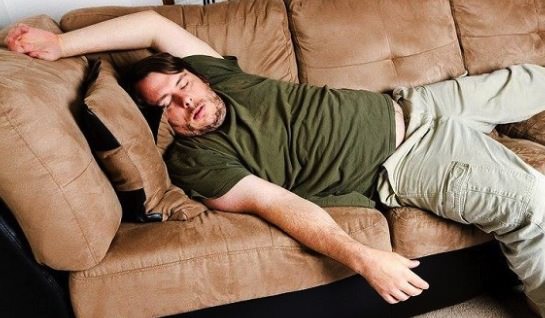Are you getting a full nights sleep? If not, a new study shows you could be facing some pretty interesting consequences.
In a study conducted by psychological scientist Steven J. Frenda of the University of California, Irvine and colleagues, sleep-deprived people who viewed photographs of a crime being committed and then read false information about the photos were more likely to report remembering the false details in the photos than were those who got a full night’s sleep.
Research has demonstrated that failing to get your full eight hours interferes with cognitive functioning, but Frenda noticed a gap in the literature when it came to sleep and memory.
“Over the years I noticed that whenever I had a bad night’s sleep, my perception and memory seemed to get fuzzy until I had a good recovery sleep,” explains Frenda. “I was surprised to find that there were so few empirical studies connecting sleep deprivation with memory distortion in an eyewitness context. The studies that do exist look mostly at sleep deprived people’s ability to accurately remember lists of words—not real people, places and events.”
A preliminary study conducted by Frenda and colleagues suggested that getting 5 hours of sleep or less was associated with the formation of false memories. The researchers then designed an experiment to investigate whether pulling an all-nighter would increase the likelihood of forming false memories.
Upon arriving to the lab in the late evening, the 104 college-age participants were assigned to one of four groups. Two groups were presented with a series of photos depicting a crime being committed as soon as they arrived to the lab — one group was then allowed to go to sleep, while the other group had to stay awake all night in the lab. The remaining two groups did things in the reverse order — they either slept or stayed awake all night and then viewed the crime photos in the morning.
In the second part of the experiment, the participants read narratives containing statements that contradicted what the photographs actually showed. For instance, a text description might say that the thief put a stolen wallet in his pants pocket, whereas the photo shows him putting it in his jacket.
The researchers found that only those students who had been sleep deprived for all parts of the experiment — that is, they viewed the photos, read the narratives, and took the memory test after having stayed up all night — were more likely to report the false details from the text narrative as having been present in the crime photos.
The students who viewed the photos before staying up all night, however, were no more susceptible to false memories than the students who’d been allowed to sleep.
The researchers believe these findings have important legal applications:
“Recent studies are suggesting that people are getting fewer hours of sleep on average, and chronic sleep deprivation is on the rise,” says Frenda. “Our findings have implications for the reliability of eyewitnesses who may have experienced long periods of restricted or deprived sleep.”
Frenda concludes that more research is necessary before scientists can provide law enforcement with evidence-based guidelines on how to best ensure that eyewitnesses’ memories are accurate:
“We are running new experiments now, in order to better understand the influence of sleep deprivation on processes related to false memory.”
Agencies/Canadajournal
 Canada Journal – News of the World Articles and videos to bring you the biggest Canadian news stories from across the country every day
Canada Journal – News of the World Articles and videos to bring you the biggest Canadian news stories from across the country every day



